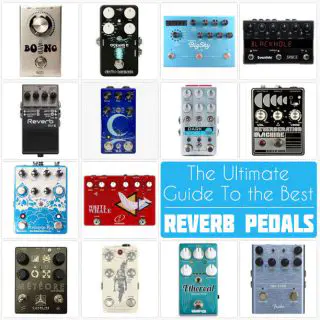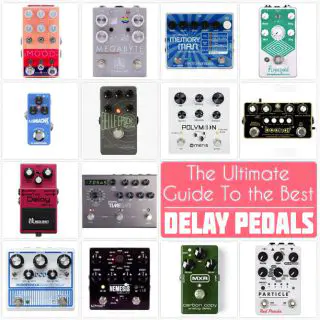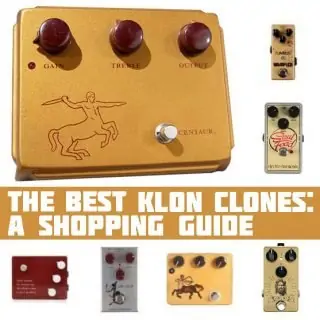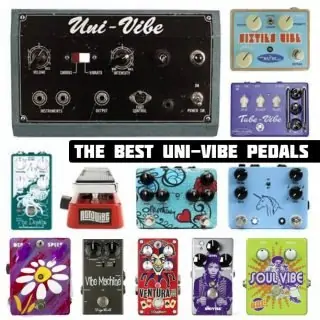| BAMBARA’S CRUCIAL STUDIO GEAR |
||
|
Beyerdynamic M88 microphone
![8736_l[1] 8736 l1](http://delicious-audio.com//wp-content/uploads//2015/04/8736_l1.jpg) “It did a great job of darkening up the brightest [guitar] tones while maintaining a little bit of their brutality.” ![electroharmoni[1] electroharmoni1](http://delicious-audio.com//wp-content/uploads//2015/04/electroharmoni1.gif) “Our best friends for the vocals were definitely the Electro-Harmonix Holy Grail Reverb, and the Boss DD6. The combined feedback effect gave a really nice sheen on the sibilant consonants.” |
||
Brooklyn/Athens based trio Bambara plays that niche genre – unknown to most mortals – called “noise rock.” You may have more luck getting a reaction from saying the words “Sonic Youth,” the NYC band that pioneered it in the late 80s. In their latest album “Dreamviolence,” the trio takes things to darker and sometimes even noisier extremes. We asked them a few questions about how it came together. The guys are lucky enough to have a sound engineer in the band, William Brookshire, who recorded the album and answered our questions.
How much of your recording is done at home versus in the studio?
Almost all the entire record was recorded in our small basement in Bushwick, Brooklyn. The drum tracks for “All the Same,” “Divine Teeth,” and “Breaker” were actually recorded in a friend’s larger, more live-sounding basement, which is also in Bushwick. For “Bird Calls,” “Nail Polish,” and “Hawk Bones” some additional recording and editing was required to be done in a studio in order to clean up a few mistakes made during the initial drum recording. Our friend Drew Vandenberg was able to help us out in Studio B of Chase Park Transduction in Athens, GA. The vast majority of tracking, though, and ALL of the mixing process was done in our own dank, dark, Brooklyn basement.
What are the pieces of equipment that you found particularly inspiring when recording your latest album?
The Beyerdynamic M88 microphone was by far the most necessary piece of equipment for capturing the tone of the guitars and vocal loops. It did a great job of darkening up the brightest tones while maintaining a little bit of their brutality. We’ve also always had luck in getting an interesting vocal sound using an Electro-Voice 635Aomni directional microphone (pictued) sung through a guitar amp.What did you record in the studio and what did you record by yourself and why?
The hardest thing to record at home, most everyone agrees, is the drums. In a studio, the room sound is already there, the gear is there, and if you’re going to record any one thing to 2″ tape, the ideal would be drums, where the improvement to the sound quality is most noticeable. If you have a good basic drum sound to work with, the entire rest of the album will come a lot easier. Also, with enough funds, it would be nice to mix an entire record in a studio.
What one piece of hardware/software would you most like to add to your recording setup (cost not an issue)? Why?
One piece of gear I would love to add would be the Ursa Major Space Station SST-282 (pictured below). We had to use a lot of reamping through reverb and delay guitar pedals on the record, and the Ursa Major would have met all of our new needs for added space and room sound. Aside from that, the Neve Portico 5024 would be great. A lot of the trouble we had during the mixing stage was due to medium quality initial recordings. To be honest, though, I want everything.
Do you expect your next record to be self-produced, or would you like to work with a producer? If it’s the latter, who would you most like to produce your band, and why?I imagine us producing our own recordings for the time being, however, if someone were to arrange some studio time with Graham Sutton, I wouldn’t be opposed. Also, I find the man intimidating, but a session or two with Steve Albini would be an intriguing opportunity.
Do you use rack effects or guitar pedals to forge your own sound? If you do, please list the ones you use the most and let us know why you love them.
We actually only used guitar pedals and amp sound for the effects on the record. Our best friends for the vocals were definitely the Electro-Harmonix Holy Grail Reverb, and the Boss DD6. The combined feedback effect gave a really nice sheen on the sibilant consonants.Do you have a particular recording style that you aim for? What techniques do you employ to recreate it?
We aim to have the impact of close mic recordings while maintaining a very roomy sound. In order to accomplish this, we record almost everything close and far and meticulously blend the two during the mixing stage.
Who determines the direction and style of your recordings?
We are all very much involved throughout the recording process, and we all decide the direction and style of the recordings.
Is there a person outside the band that’s been important in perfecting your recorded or live sound?
We’ve definitely learned a handful of important techniques in capturing our sound from David Barbe, Drew Vandenberg and Joel Hatstat during our time in Athens, GA.
Mixing is easily the most difficult part of the process. Everything is under a microscope, and […] every movement can seem like some Japanese butterfly just flapped its wings all over your song,
What other artists would you say have had the biggest influence in your approach to recording? Why?
Important artists for me include Talk Talk, Bark Psychosis, David Bowie, Future Islands and The Jesus Lizard. The first two have recordings out there that embody my ideal of space and atmosphere. David Bowie’s vocal sound is something to be envied. I love Future Islands for their bass tone mixture of DI signal and close-medium delay trails, and the drum sound on the Albini Jesus Lizard records are thunderous.
Would you say that your live show informs your recording process or that your recording process informs your live show? Both? Neither?
Over time, I have begun to feel like our recordings and live shows are separate entities. I think the energy of our music comes across much better in a live setting, but in a recording, the listener will hear every component of every song; lyrics and vocal sound are very important to us.
Is there a piece of equipment that you find particularly useful on stage?
A good Radial DI box is invaluable. A boring, but honest answer.
What do you find to be the most challenging aspects of the recording process? On the flipside, what aspects are the most rewarding?
Mixing is easily the most difficult part of the process. Everything is under a microscope, and everyone wants to hear (and should hear) their ideas realized. If something doesn’t sound right, the question is “Should we spend an hour or two fine-tuning this track, or just record it over again?” Every movement can seem like some Japanese butterfly just flapped its wings all over your song, but once everyone agrees that the mix is good, it’s the best feeling for me. Then, when people listen to the record and can accurately describe your intentions through the sounds that they heard, they’re giving you the ultimate compliment as an engineer, and that’s definitely the most rewarding part of the whole process.















![10422086_10154396203090137_6959967714041776611_n[1] 10422086 10154396203090137 6959967714041776611 n1](http://delicious-audio.com//wp-content/uploads//2015/04/10422086_10154396203090137_6959967714041776611_n1.jpg)
![electro_voice_635a[1] electro voice 635a1](http://delicious-audio.com//wp-content/uploads//2015/04/electro_voice_635a1-151x600.jpg)
![Ursa-Major-Space-Station[1] Ursa Major Space Station1](http://delicious-audio.com//wp-content/uploads//2015/04/Ursa-Major-Space-Station1-612x169.jpg)
![dd6_main[1] dd6 main1](http://delicious-audio.com//wp-content/uploads//2015/04/dd6_main1.jpg)







